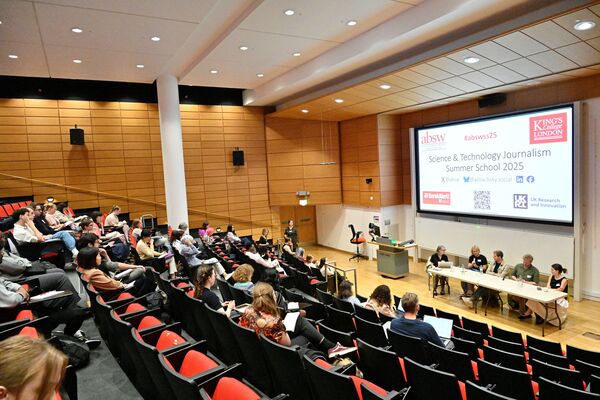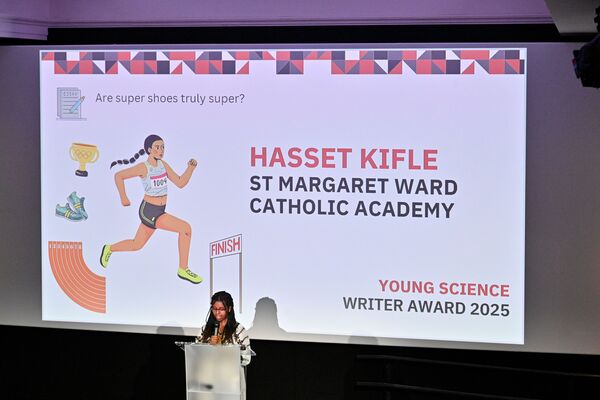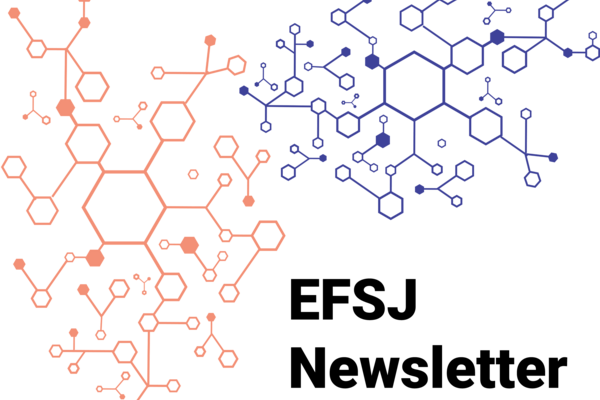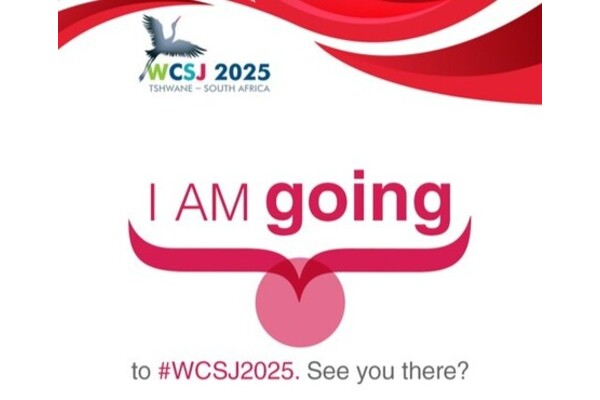Photo credit: Mark Lewis Photography
The ABSW Science and Technology Journalism Summer School 2025 took place in association with King’s College London – fortunately close enough to London Bridge station that even a non-Londoner like myself would have found it hard to miss. The summer school allowed us to select workshops and panels to attend, resulting in many possible experiences (16 variations!). My own choice of events resulted in a day centred on the evolving landscape of digital journalism and communication through social media.
I left the first plenary contemplating Big Ideas and Questions broached by the panellists: how are search engine interfaces and platforms transforming how we interact with journalism, and journalists themselves? Which parts of our jobs might AI replace? Indeed, will there even be media positions to compete for?
Sitting in on the panel aptly entitled “Your Digital Future”, it put the spotlight on the difficulties of having your voice heard on the internet. When algorithms are tailored to your personal taste, it is hard to even secure your audience, let alone maintain it (attention itself has achieved its own ecosystem, or “the attention economy”).
Olivia Hains and Mun Keat Looi, the speakers on this panel, offered the idea that with the advent of the internet, every journalist has become a brand, while every reader has become a critic. Similar sentiments echoed within the plenary and the audience: journalism has turned from presentation to representation. Specific points that they picked up on included the battleground of Google’s search results: warfare, including the shift to deprioritise content containing links away from the current platform, dulled creativity, and the disappearance of safety surrounding social media content.
These trends have been observed and researched by the Reuters Institute Digital News Reports, which analyses digital news consumption. The 2025 report, referenced by the panellists, highlights the “rise of the alternative media ecosystem” – YouTubers, TikTokers, and podcasters – as well as the use of AI chatbots to receive news, particularly among younger audiences.
Of course, I had already been intrigued by Tom Crawford’s (of Tom Rocks Maths) workshop on “Becoming a Science YouTuber”, a deceptively simple title – but fitting for the debates surrounding the use of clickbait – never mind the skill itself of translating maths into watchable entertainment. He held a captive audience, and for all the fearmongering surrounding doomscrolling and Oxford’s 2024 word of the year, “brain rot”, at least this workshop gave me reassurance about the efforts made by humans creating content on the other side of my screen.
Ranging from panels discussing the vast digital landscape to sessions focusing on specific platforms, as well as more “traditional” journalism workshops on interview skills and the “Art of Pitching”, it was no wonder there was dedicated time to reflect on the summer school programme with the other participants at the end of the day.
Codified into key interview and pitching Do’s and Don’ts and then put into practice through interactive activities, these latter events grounded the more abstract digital concerns with analogue journalism: manual control and skills to hone. It reinforced a sense of shared responsibility to uphold journalistic integrity as we witness its defining features morph in front of our eyes. I came away with the sense that there is refuge in science communication: juggling technical concepts with clarity, we are well-positioned to adapt to new relationships with online media. From this vantage point, we can then actively shape the trajectory of meaningful interactions. That is, by considering the questions of whether we should be adapting content to what consumers want – an endless stream of short-form videos – or should we be the ones challenging them?
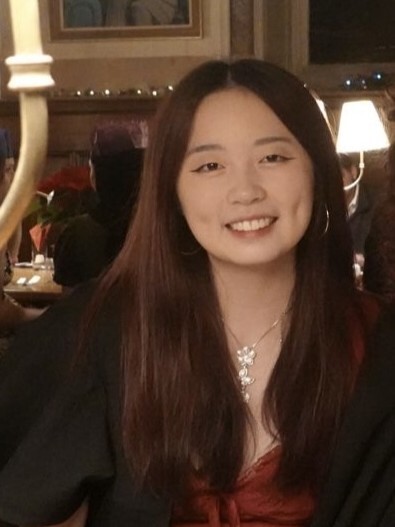
Ushika Kidd is a BA Human Sciences graduate from the University of Oxford and an intern at Carbon Brief. She is passionate about diversifying environmental journalism and making links with interdisciplinary issues such as public health and biocultural conservation.
Ushika was awarded a Diversity Scholarship 2025.

